Scientists Pivot Research to Tackle SARS-CoV-2
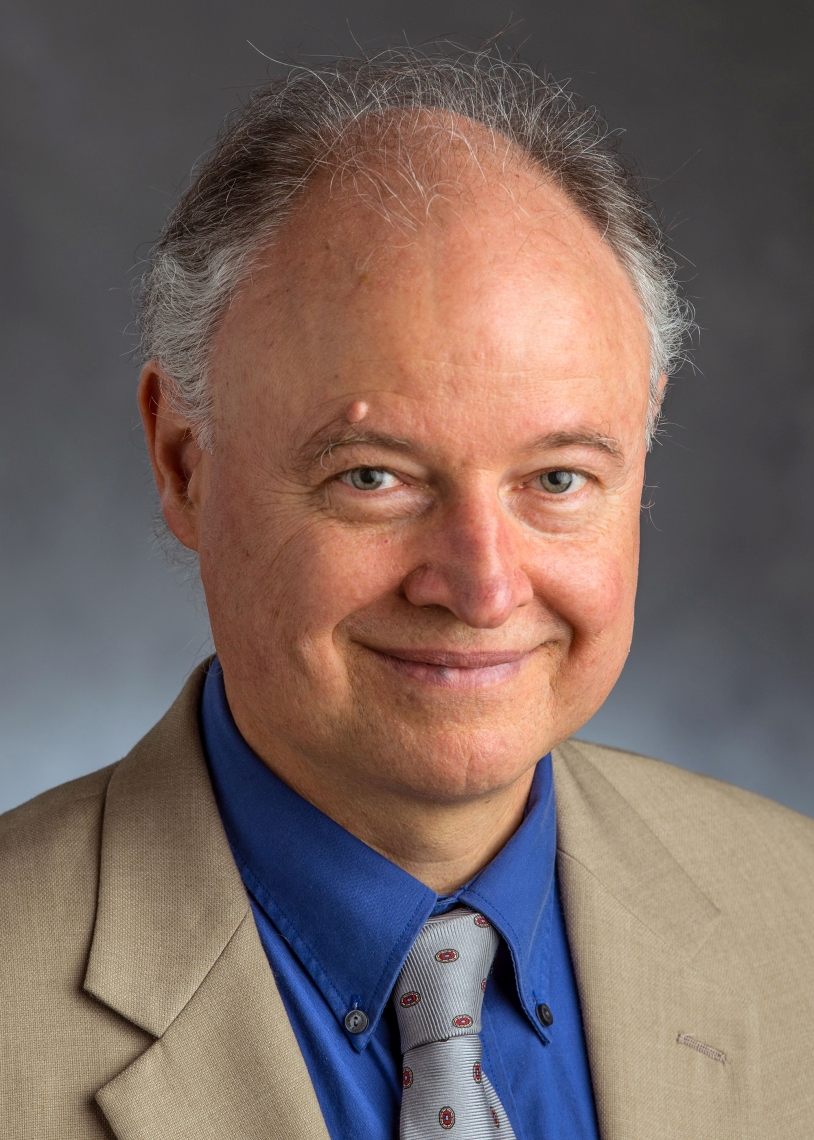
"Forefront research to help solve the critical challenges facing humanity is central to the mission of the College of Natural Science, namely, "A thriving planet and healthy communities through scientific discovery." I want to thank these outstanding researchers, and many other contributors in the college, for their ongoing work directed at resolving the threat of viral diseases such as COVID, which are one of the greatest challenges of our times."
Phillip Duxbury
Dean
College of Natural Science
Many scientists across the University have worked under challenging conditions and restricted laboratory capacity to forge ahead with vital research, finding innovative ways to collaborate across disciplines to tackle the coronavirus.
Guowei Wei
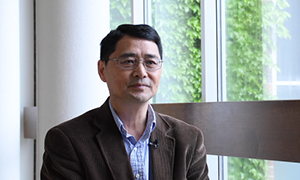 MSU Department of Mathematics professor Guowei Wei and his team develop machine learning computer models that use deep learning techniques to create datasets that can predict variables to guide the design and testing of therapeutics. When COVID-19 hit, Wei repurposed his technology to focus specifically on the SARS-CoV-2 protein, using the models to predict key behaviors of more than 100 protease inhibitors that target the virus's main protease to disable the means of viral replication. By highlighting the most promising inhibitors, Wei's data saves labs and companies valuable time and resources by focusing on therapeutics that will be most effective against the coronavirus. See more:
MSU Department of Mathematics professor Guowei Wei and his team develop machine learning computer models that use deep learning techniques to create datasets that can predict variables to guide the design and testing of therapeutics. When COVID-19 hit, Wei repurposed his technology to focus specifically on the SARS-CoV-2 protein, using the models to predict key behaviors of more than 100 protease inhibitors that target the virus's main protease to disable the means of viral replication. By highlighting the most promising inhibitors, Wei's data saves labs and companies valuable time and resources by focusing on therapeutics that will be most effective against the coronavirus. See more:
Machine learning helps hunt for COVID-19 therapies
Machine learning model finds SARS-CoV-2 growing more infectious
Yong-Hui Zheng, Dohun Pyeon, and Xuefei Huang
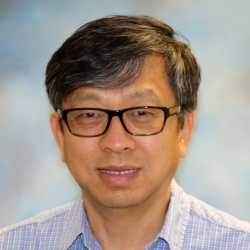
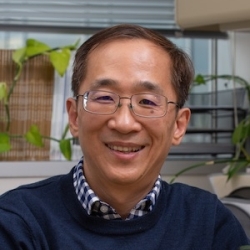
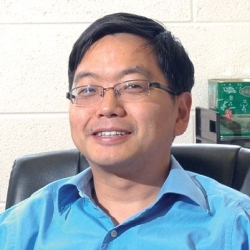
MSU Department of Microbiology and Molecular Genetics professor Yong-Hui Zheng and his lab members study viral biology and the first step in viral infection—how the virus enters the cell. As with other viruses, such as HIV and Ebola, understanding a key feature of the virus—the "spike protein"—is critical to understanding how the coronavirus initiates infection. With more than 20 years experience studying viruses, Zheng was able to quickly apply previous research to the study of COVID-19.
Dohun Pyeon, associate professor in the Department of Microbiology and Molecular Genetics, is investigating how SARS-CoV-2 interacts with and hijacks the host cellular mechanism for entry, replication, and pathogenesis. He is collaborating with Xuefei Huang, MSU Foundation Professor of chemistry, to develop a neutralizing antibody that can be used to develop therapeutics. See more:
Scientists focus on fundamental virology and therapeutics in COVID-19 fight
Frances Pouch Downes
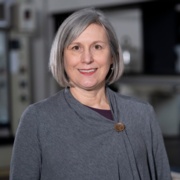 MSU Biomedical Laboratory Diagnostics (BLD) Program professor, Frances Pouch Downes, collaborating with a team of BLD alumni and medical laboratory scientists, developed one of the world's first SARS-CoV-2 proficiency testing programs. Downes' team enrolled more than 300 clinical laboratories from 46 states and four countries to determine the accuracy of methods being used to test for coronavirus. Her study was able to show that these new and rapidly developed tests are highly accurate, giving confidence in medical decisions based on their results. See more:
MSU Biomedical Laboratory Diagnostics (BLD) Program professor, Frances Pouch Downes, collaborating with a team of BLD alumni and medical laboratory scientists, developed one of the world's first SARS-CoV-2 proficiency testing programs. Downes' team enrolled more than 300 clinical laboratories from 46 states and four countries to determine the accuracy of methods being used to test for coronavirus. Her study was able to show that these new and rapidly developed tests are highly accurate, giving confidence in medical decisions based on their results. See more:
Spartan scientists administer international proficiency testing program for SARS-CoV-2